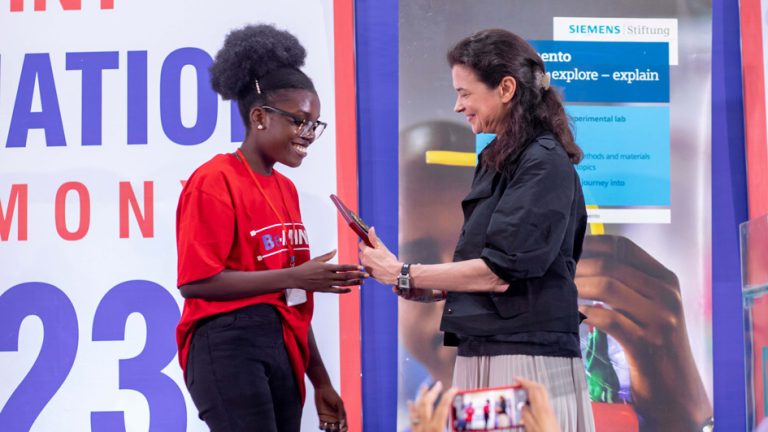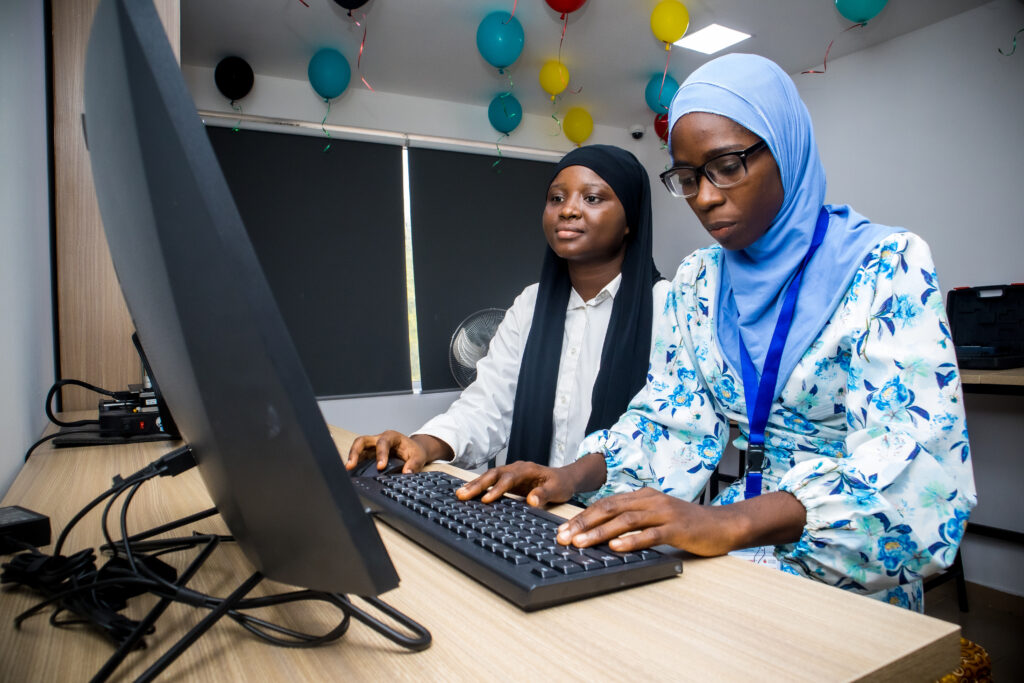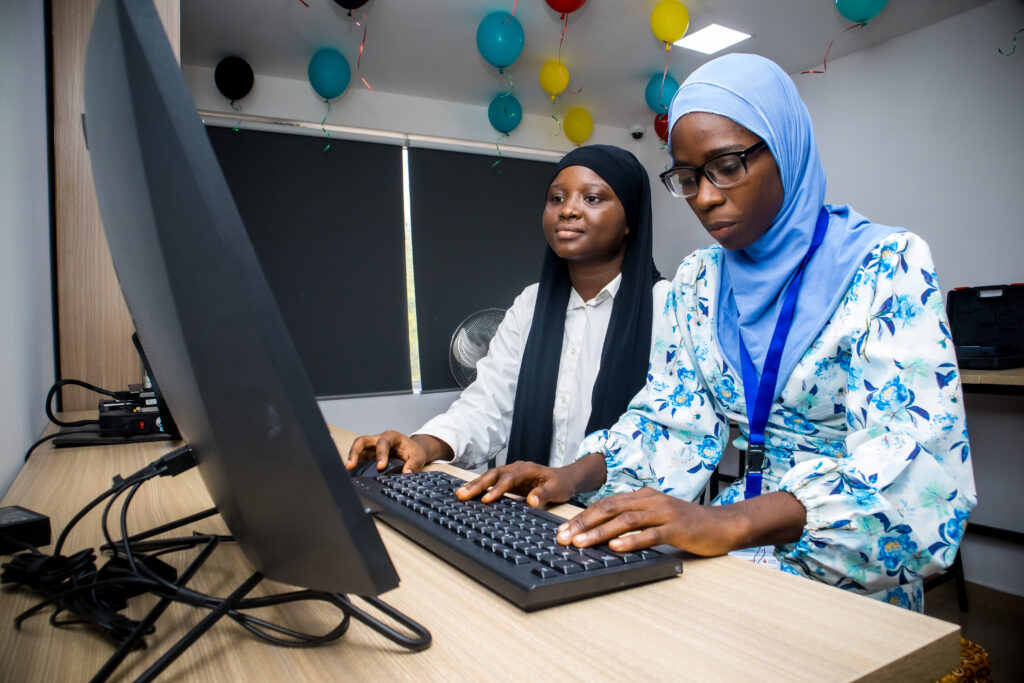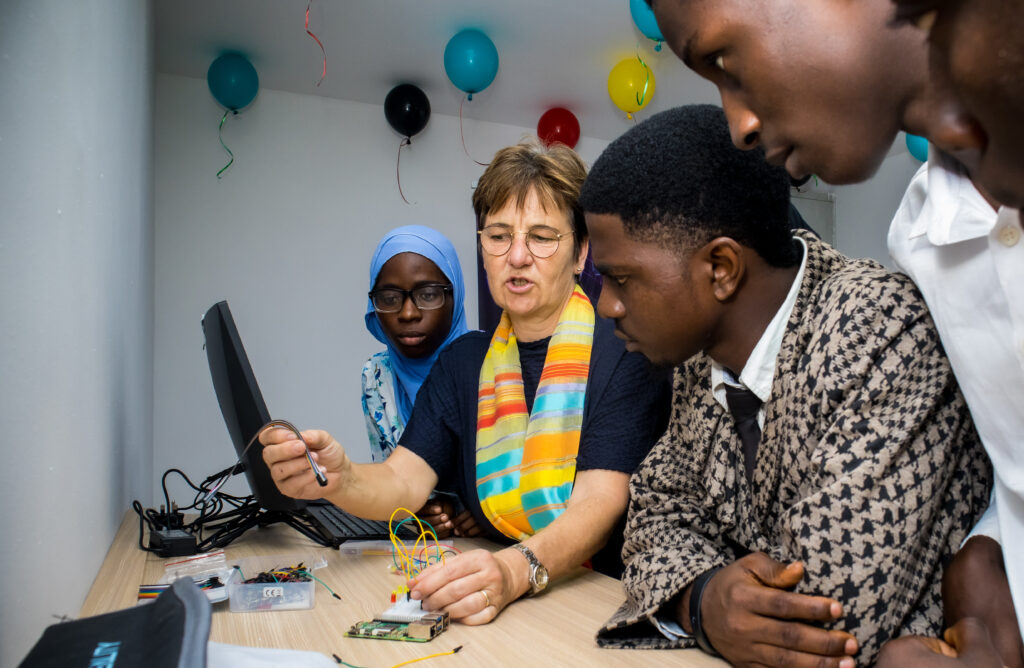New Makerspace Unveiled in Lagos to Provide Digital Education and Entrepreneurship Training for Young people, Bridging Gender and Social Gaps.
By Raymond Enoch.
A new makerspace, designed to foster career opportunities and technological innovation, was officially inaugurated in Lagos, marking a significant milestone for the future of Nigeria’s youth in the digital world. The state-of-the-art facility will provide young Nigerians, particularly those from low-income backgrounds, with hands-on training in Information Technology (IT), digital design, and entrepreneurship, paving the way for new career prospects and the growth of the nation’s digital economy.

The facility is part of the BeMINTNigeria initiative, a joint venture between Siemens Stiftung, Empowering Africans through Education (EAE), and the German Federal Ministry for Economic Cooperation and Development (BMZ).
This initiative aims to provide youth with digital skills, focusing on women and underserved communities. A key objective is to close the gender gap in Science, Technology, Engineering, and Mathematics (STEM), where women represent only 22% of the workforce globally.

At the inauguration, Mr. Weert Börner, the German Consul General in Lagos, emphasized the importance of digital education in the rapidly evolving global economy. “While the digital revolution has transformed societies and economies, it has also widened gender and social inequalities,” Börner stated. “This project builds on the success of the first phase launched in 2022 and aims to empower young Nigerians, especially women, by equipping them with the digital skills necessary to thrive in the 21st century.”

The 25-square-meter makerspace is equipped with cutting-edge digital tools, including 3D printing technology, computer-aided design software, and Artificial Intelligence (AI) platforms. The space will serve as a hub for creativity, innovation, and practical learning, enabling participants to bring their prototypes and ideas to life.

The training program is a comprehensive 12-week course targeting youth aged 18 to 24, with an emphasis on practical IT skills, digital prototyping, and entrepreneurial mindset development. The program includes 160 teachers, who will also be trained at the makerspace, equipping them with the skills to inspire and educate the next generation of innovators.
“The program’s success lies in its ability to offer not just training but a real pathway to economic independence,” said Ms. Chinenye Ezeakor, Co-founder of EAE. “Participants will benefit from mentorship opportunities, networking with international companies like Google and Microsoft, and gain certifications from the Delegation of German Industry and Commerce (AHK), which will enhance their job market prospects.”
The BeMINTNigeria initiative will run for three years, with nine batches of 45 students each, providing them with crucial digital skills in IT, vocational training, and entrepreneurial thinking. The program aims to benefit a total of 400 youth, providing them with not only the technical expertise but also the confidence and experience needed to succeed in a rapidly digitizing world.
In addition to the professional training, the program emphasizes the importance of innovation in fostering sustainable development in Africa. “Investments in digital education are the key to economic change,” said Dr. Nina Schmidt, CEO of Siemens Stiftung. “Through this project, we are providing young Nigerians with the tools they need to enhance their market competitiveness and contribute to Nigeria’s growing digital economy.”
As part of the effort to encourage diversity in the STEM field, the BeMINTNigeria initiative also actively works to improve female participation, ensuring that women have equal opportunities to enter and succeed in the digital space. “By expanding access to technology education, we’re leveling the playing field for young women and providing them with the means to build successful careers in a male-dominated industry,” said Schmidt.
The project is a shining example of Nigerian-German cooperation, with a shared commitment to advancing education, reducing inequality, and improving career prospects for the country’s youth. The new makerspace is set to become a catalyst for positive change, offering innovative solutions to bridge the skills gap and prepare young Nigerians for a future driven by technology and digital innovation.








